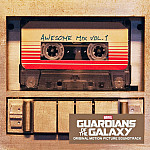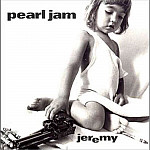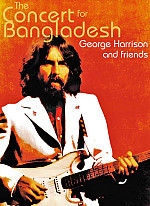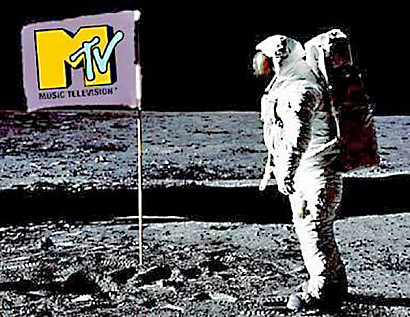1 AUGUST
Featured Events
 2014 The movie Guardians of the Galaxy opens in America, reviving '70s favorites like "Hooked On A Feeling" and "Come And Get Your Love."More
2014 The movie Guardians of the Galaxy opens in America, reviving '70s favorites like "Hooked On A Feeling" and "Come And Get Your Love."More
1994 Michael Jackson and Lisa Marie Presley announce that they are married, having wed at a secret ceremony in the Dominican Republic 11 weeks earlier.
 1992 Pearl Jam's "Jeremy" video, depicting the teen suicide described in the song, makes its debut on MTV. It goes on to win Video of the Year at the VMAs.More
1992 Pearl Jam's "Jeremy" video, depicting the teen suicide described in the song, makes its debut on MTV. It goes on to win Video of the Year at the VMAs.More
1990 After writing "Blaze of Glory" for the film, Jon Bon Jovi makes his acting debut in Young Guns II, playing an inmate who gets shot.
 1971 George Harrison hosts the Concert For Bangladesh, the first major charity concert and the precursor to Live Aid. Guests include Bob Dylan, Eric Clapton, Billy Preston and Ringo Starr.More
1971 George Harrison hosts the Concert For Bangladesh, the first major charity concert and the precursor to Live Aid. Guests include Bob Dylan, Eric Clapton, Billy Preston and Ringo Starr.More
1971 The Sonny And Cher Comedy Hour, starring the popular duo, premieres on CBS.
1942 Jerry Garcia of the Grateful Dead is born in San Francisco, California.
1 AUGUST
In Music History
2015 Rush play their last concert, closing out their R40 Live tour with a show at The Forum near Los Angeles. It's not announced as their farewell, but the band has hinted it might be. At the end of the show, drummer Neil Peart uncharacteristically comes to the front of the stage to take a bow with his bandmates.
2014 The BBC screens Elvis: That's Alright Mama 60 Years On to celebrate the 60th anniversary of the recording of the song: July 5, 1954.
2012 Tony Sly (frontman for No Use For a Name) dies in his sleep at age 41. No cause of death is revealed.
2006 30-year-old Andy Richardson dies after he is beaten in the mosh pit during the Deftones' set at the Family Values tour in Atlanta.
1996 Bill Buchanan, known for a songwriting partnership with Dickie Goodman that produced the 1956 hit "The Flying Saucer," dies of cancer at age 81.
1994 The Rolling Stones politely refuse an invitation to play at the Bill Clinton White House, though they play his 60th birthday party in 2006.
1994 The Rolling Stones begin their Voodoo Lounge tour with a show in Washington, D.C. Their first tour without bass player Bill Wyman, it goes for 134 shows and finishes as the top-grossing tour of all time.
1989 The Rolling Stones release their album Steel Wheels, which contains the hit "Mixed Emotions."
1988 Mudhoney's first-ever single is released: "Touch Me I'm Sick" b/w "Sweet Young Thing Ain't Sweet No More," via Sub Pop Records.
1988 Cincinnati AM radio station WCVG changes its format, becoming the first US all-Elvis radio station. The burning love for the format dies out after a year, and on August 16, 1989, it switches to talk.
1988 Soundgarden release their second EP, Fopp, on Sub Pop Records. Its title comes from the name of an Ohio Players song, which they cover on the set.
1987 MTV Europe makes its debut. The first video shown is Dire Straits' "Money for Nothing," a song where Sting proclaims, "I want my MTV."
1987 Guns N' Roses head to Park Plaza and 450 South La Brea in Hollywood and shoot their first video, for "Welcome To The Jungle."
1985 Tom Waits releases Rain Dogs, widely considered one of his most important and innovative works. Synthesizers and samples - very common in the 1980s - are deliberately absent as Waits develops the unique approach he began on Swordfishtrombones.
1984 Jermaine Jackson appears on an episode of CBS's long-running soap opera As The World Turns.
MTV Launches In America
 1981
1981MTV goes on the air, bringing music videos to the masses - at least the ones with cable.
With the words "Ladies and gentlemen: Rock and roll," spoken by network co-creator John Lack, Viacom-owned MTV ("Music Television") makes its broadcast debut. Following a montage of NASA footage, culminating in the iconic photo of an Apollo astronaut standing near the American flag he planted on the Moon (but with the Stars And Stripes replaced by the network's logo), MTV segues into its first music video, "Video Killed The Radio Star" by British duo The Buggles, which had peaked at #40 in the US back in 1979, but was a #1 hit in five European countries. It's followed by Pat Benatar's "You Better Run," Rod Stewart's "She Won't Dance with Me," The Who's "You Better You Bet," and "Little Suzi's On the Up" by the rather less-remembered British duo Ph.D. Pre-MTV, music videos existed primarily to promote singles by already popular bands; one early example is the clip for "Strawberry Fields Forever," which along with a promo for "Penny Lane" was played on American Bandstand and The Ed Sullivan Show in lieu of The Beatles performing. Various attempts to launch music video TV channels were made throughout the 1970s, without major success. Involved in some of these efforts were Lack and Robert Pittman, who would become MTV's president/CEO and help turn it into a worldwide sensation, eventually making it cable's first profitable network (ESPN went on the air in 1979, but all that Australian rules football didn't turn a profit). MTV changes the game, making music videos a key piece of marketing strategy for singers and bands. This favors camera-friendly acts like Duran Duran, Van Halen and Madonna, but is unkind to the likes of REO Speedwagon. It also legitimizes music video as an art form, drawing young directors who go on to make major feature films. Among them, David Fincher (Se7en), Spike Jonze (Her) and F. Gary Gray (Straight Outta Compton). In the '90s, MTV moves away from videos and toward reality and scripted original programming like The Real World and Teen Wolf.
Categories
©2024 Songfacts®, LLC

Comments: 1
send your comment